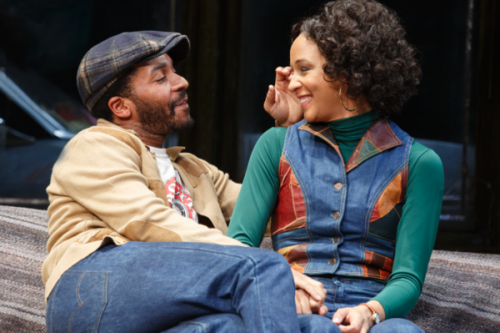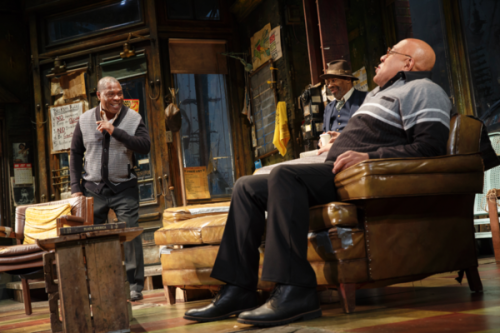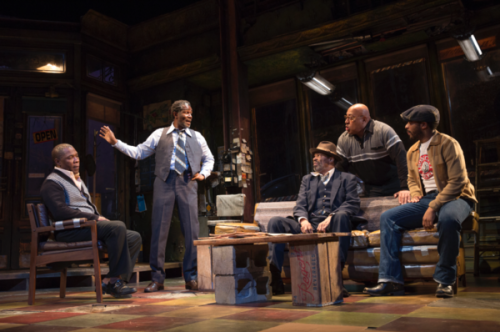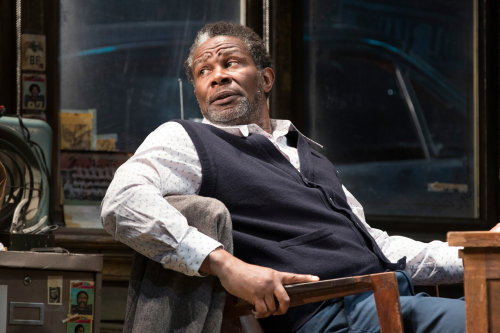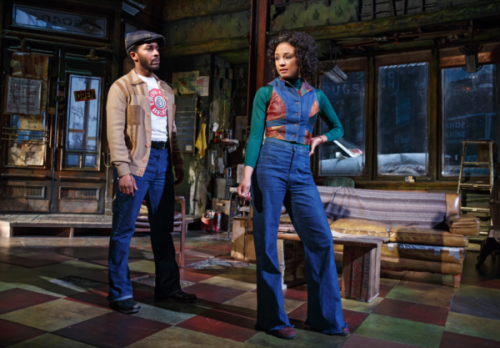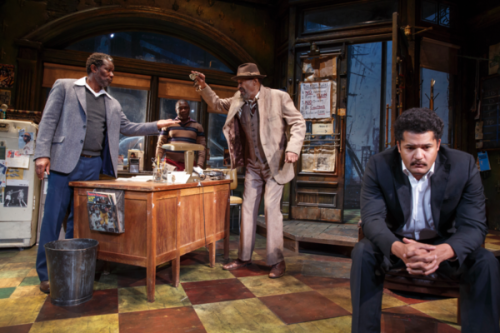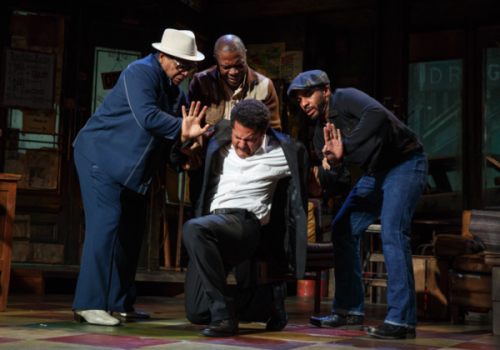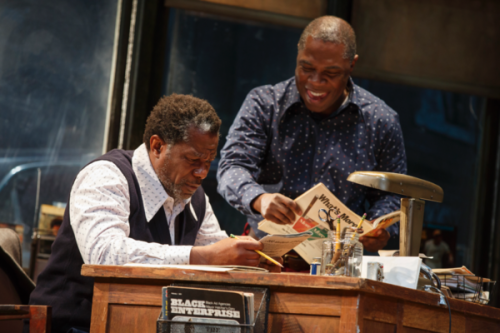#ruben santiago-hudson
“Jitney” by August Wilson
Samuel J. Friedman Theatre, 2016
Starring Harvy Blanks, Anthony Chisholm, Brandon J. Dirden, Andre Holland, Carra Patterson, Michael Potts, Keith Randolph Smith, Ray Anthony Thomas & John Douglas Thompson
Post link
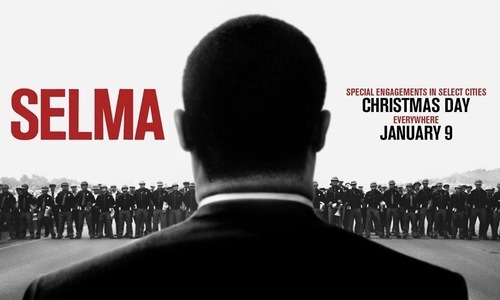
Last week, I was lucky enough to go to a preview screening of the movie Selma before it was released nationwide this past weekend. It’s taken me more than a week to figure out what I wanted to say about the film since I read several articles (here,here, and here) that said much of what I thought about the film.
My thoughts on the film centered on two words: powerful and relevant.
The movie is very powerful in the way it depicts the methodic and determined history of the civil rights movement and the barbaric and inhuman way those in authority responded to the seemingly simple request for being treated like human beings. It’s shocking and horrifying to see how brutal peaceful protesters are beaten and even killed by police officers while crowds of people stand by and cheer them on. What makes things even sadder is that the events portrayed on the screen actually happened.
Portraying an iconic figure like Dr. Martin Luther King, Jr. is a monumental task and English actor David Ayelowo does a superb job. Not only does he get Dr. King’s speech patterns and mannerisms down, but he also provides an emotional depth by showing the human side of Dr. King that is so often overlooked. Director Ava DuVernay (who also did an uncredited rewrite of the script) does a masterful job of portraying a familiar and well known part of recent history in a new and moving way. She also deftly shows that the civil rights movement was an outpouring of the African-American community supported by allies from other races and faiths. That’s sadly not something that gets shown in many films.
Even though I knew the history, I was overcome by my emotions at several parts. One of the things that stuck out to me the most was how much they showed Dr. King taking the events so personally. Each time people are attacked and those that are tragically murdered for the cause, the film shows him overcome with grief. Several times he makes decisions because he does not want to see people get hurt because of his choices.
TheOscar nominations came out today and Selma was left out of several key categories including Best Director for Ava DuVernay and Best Actor for David Ayelowo. While awards are not the only factor in determining a film’s quality, they do help to raise awareness of the nominated films and there is a prestige that comes with Oscar nominations. The problem with the Oscars and the Academy is that they are predominantly old, white men, many of whom are not even actively working in filmmaking. Of the 20 nominees in the acting categories, exactly ZERO nominees are minorities. There has never been an African-American woman nominated for Best Director. Apparently a movie about a white dude with a sniper rifle is more deserving of recognition than the depiction of one of the most important events in American history in a film that is nearly universally acclaimed. I am disgusted.
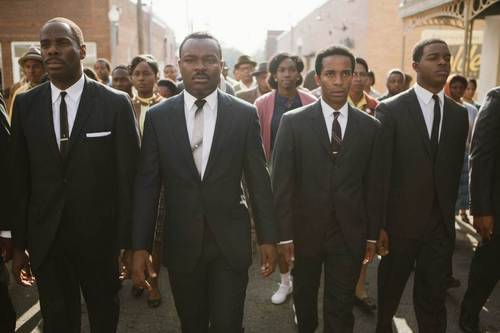
The movie is also relevant to our world as we watch the news and see that while so much progress has been made in the 50 years since Selma, there is still so much farther we need to go. The march from Selma to Montgomery was intended to put pressure on Washington to pass the Voting Rights Act and provide protections for minorities so they could not be prevented from registering and voting. In 2013, the Supreme Court struck down several key provisions of the Voting Rights Act, and (SURPRISE!) a series of new laws have been passed in several states that many argue make it harder for minorities, people with low incomes, and students to vote. One of the clear messages of Selma is that the fight that was being portrayed is still being fought 50 years later, just in a less obvious way.
The scenes depicting violence and intimidation by police and elected officials at the state and local levels also bring to mind the recent protests in the wake of the deaths of Mike Brown in Ferguson, Missouri andEric Garner in New York City. Being a person of color is enough to make you suspicious to some law enforcement agenciesandpsychopathic community watch vigilantes.
Many of these current problems make me angry, and I know I’m not alone. But I believe the larger message of Selma is not to incite people to anger, but to remind us all of how to react to such gross injustice. Over and over again, Selma shows protesters continually showing up and standing up to injustice with quiet dignity and strength. There are no guns, no looting, and those that voice a desire to repay violence with more violence are quickly shouted down. The protesters brought the masses to their side precisely because they did not retaliate with a fist, but a hand clasped in another hand walking peacefully towards justice.
For those that continue to fight the battles that we still face, Selma is a timely film that can both show us the distance we have travelled as a country and hopefully provide a path for us to follow in the future. The original song “Glory” from Selma written by John Legend and Common won the Golden Globe for Best Original Song and is nominated for an Oscar in the same category. I want to leave you with a portion of the lyrics from that song and the video.
“The biggest weapon is to stay peaceful
We sing, our music is the cuts that we bleed through
Somewhere in the dream we had an epiphany
Now we right the wrongs in history
No one can win the war individually
It takes the wisdom of the elders and young people’s energy
Welcome to the story we call victory
Comin’ of the Lord, my eyes have seen the glory”

